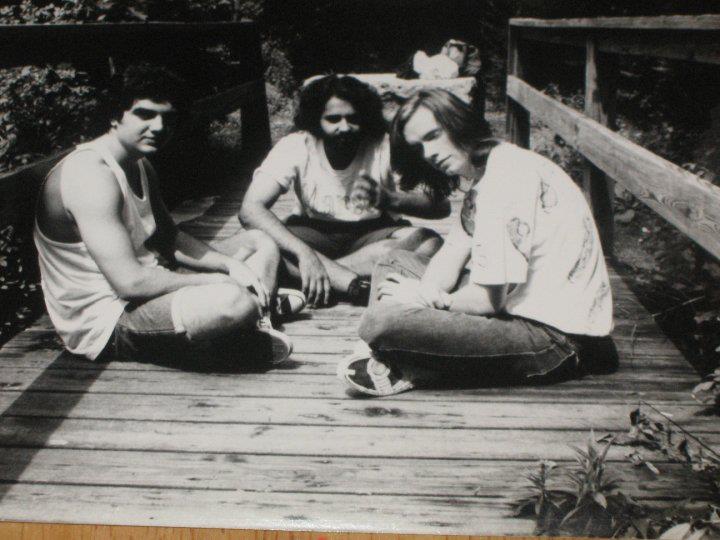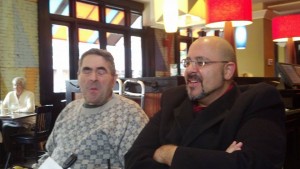The author finds that OCD behavior runs strong among the men in his family.
It’s been said that certain crosses run in the family. Addictive behavior. Depression.
Yesterday my father had three long stents inserted into his leg. Apparently the entire leg was full of blockages. He eats compulsively, and this contributes to the problem. In 1998 he had quadruple bypass surgery, but the bad eating continued.
He’s always been able to bolt down the food. That trait was passed down to my brain, where it mixed with OCD, depression and other nasty byproducts.
I put my binge-eating addiction down well over a year ago and embraced a 12-Step program through OA, just like you do if you’re kicking alcohol or narcotics.
But OA isn’t my father’s style. Never has been. Never will be.
I’d like to think I’m doing better than my father when it comes to taking care of myself. I kicked binge eating and alcohol, am maintaining a 65-pound weight loss without doing all the stupid things I used to do to stay thin.
But I’m no dummy. I know this family inheritance is still with me.
With addictive personalities, it’s always something. I’m completely addicted to caffeine, including Red Bull. Yesterday I drank two of them in the afternoon, after a morning of swilling the coffee. Then there’s the fact that I like cigars.
I don’t fret about it much because it beats the hell out of the addictions I put down; the ones that had made my life completely unmanageable and hurt the people around me in a variety of ways. And any addict will tell you it’s always going to be a struggle where you put down one thing and pick up another so you don’t go back to that first item. That’s a cross we bear for life, and the goal is to keep working to be better than the demons.
I also know there will come a time where I have to put away the cigars and cut back on the caffeine.
My life is Blessed beyond belief. It took many years to beat down the compulsive eating addiction. Longer still because it’s harder to acknowledge a food addiction than it is to come clean about something like alcoholism. No disrespect toward my friends who are recovering from alcoholism. I love them and am proud of what they’ve accomplished. I’m just saying that in our culture, some addictions are more glamorous than others. Binge eating is anything but glamorous.
Of course, any addict knows that their behavior is never glamorous behind closed doors, whatever the poison. Locked up alone with the demon, it’s a world of filth, shame and sickness.
I can’t say that my father has an addictive personality. I’m not in a position to judge him. I only know that he can put away the food, and the results have been bad.
He’s been through a lot in his life and still managed to be a kind, generous soul. I hope he sticks around for many years to come. But it’s not up to me.
I’ve noticed something else recently: Sean, my oldest child, is displaying OCD characteristics. When the boy gets into something, be it a computer game or Legos — especially Legos — he goes in deep and lets the activity consume him. In other words, he approaches these things compulsively.
The good news is that he’s otherwise much healthier than I was at his age. And he’s smarter than I ever was.
He also has another powerful advantage I didn’t have.
I’ve been far down the road he’s traveling and picked up a lot of coping skills along the way. Those skills have made all the difference.
And I can pass them on to him.
This makes me happier than you could possibly imagine.










